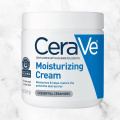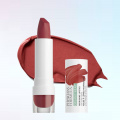The Health Benefits of Olives: A Tasty Way to Boost Your Wellbeing
Discover the amazing health benefits of olives – they promote heart health, provide essential nutrients to support brain function, and aid in weight management.

A staple in Mediterranean cuisine, olives are popularly used to add a distinct flavor to salads, sandwiches, and spreads. Furthermore, there have been numerous scientific studies that claim that there are several health benefits of olives. They have a rich content of monounsaturated fats, powerful antioxidants, vitamins, and minerals (1). Plus, they can also offer a lot of healthy fats when used in the form of olive oil, which can be added to any cuisine and enjoyed in multiple different ways.
There are many varieties of olive fruit, each with its unique taste, texture, and color. Their taste range from bitter when unripe to fruity and mildly tangy when fully ripened, which are extensively used in Spanish or Greek dishes, apart from Mediterranean cuisine. You can also eat olives whole, with the pit removed, or pitted. Therefore, in this article, we will discuss this small, oval-shaped treasure trove of health benefits in depth.
What Are Olives?
Olives are small, oval-shaped stone fruits that grow on olive trees, commonly grown throughout the Mediterranean region. Other than that, you may see olive trees planted around South America, South Africa, India, China, Australia, New Zealand, Mexico, and the United States. Scientifically known as Olea europaea, meaning “European olive”, some varieties of these fruits change colors as they ripen from green to black, while some remain green throughout. The Green and black olives from the United States and Kalamata olives from Greece are the most popular variety you can find in the market.
Olives are culinary treasures used by humans for thousands of years and can be used raw, sliced, fermented, or in oil form to add varying tastes and flavors to your marination, dressing, or stuffing. The distinct taste of olives, along with their nutritional value, makes olives a valuable addition to both traditional and modern culinary creations.
Nutritional Value of Olives
We all are aware of their culinary appeal, however, only some know of the impressive nutritional benefits of olives. These small yet mighty fruits are proven to contain abundant amounts of antioxidants, healthy fatty acids, and certain vitamins boasting an array of human health benefits. Here is the detailed nutritional value of 100 grams of olives: (1)
- Calories 115
- Total Fat 11 g - 16%
- Saturated fat 1.4 g - 7%
- Sodium 735 mg - 30%
- Potassium 8 mg - 0%
- Total Carbohydrate 6 g - 2%
- Dietary fiber 3.2 g - 12%
- Sugar 0 g
- Protein 0.8 g - 1%
- Vitamin C - 1%
- Calcium - 8%
- Iron - 18%
- Magnesium - 1%
Now that we know about the nutritional value, let us discuss the myriad of health benefits of olives and the nutrients they provide to your body.
What Are the Health Benefits of Olives?
Beyond their delectable flavor, there are a host of health benefits of olives that make them a valuable addition to any balanced diet. These succulent fruits have numerous health-promoting properties such as:
1. Good Source of Fiber: Olives contain a good source of dietary fiber content which aids in better digestive health. The insoluble fibers prove to greatly help in the passage of stool constipation acting as a laxative on the gastrointestinal tract (2). The soluble dietary fibers on the other hand act as prebiotics that provides nutrients to the beneficial gut bacteria which are responsible for healthy digestion, boosting immunity, managing blood sugar levels, and fighting pathogens inside your gut (3).
2. Rich in Probiotics: Table olives are commonly fermented by the process of natural lactic acid fermentation making them a rich source of probiotics. These bacteria enhance your gut health by maintaining the right balance of digestive enzymes and preventing pathogenic bacteria to flourish in your gut. They are proven to prevent infections, boost immunity, aid better digestion, and reduce blood cholesterol levels (4). They have been proven to help alleviate symptoms of gut disorders, such as irritable bowel syndrome (IBS), Crohn’s disease, and ulcerative colitis (3).
3. Rich in Antioxidants: Olives have antioxidant properties owing to the rich source of Vitamin E, Vitamin C, carotene, and oleocanthal, a naturally occurring antioxidant with similar properties to ibuprofen, an anti-inflammatory drug (5). Antioxidants neutralize free radical damage caused to the cells, lowering host cell deaths. Therefore, consuming olives may help in delaying aging, lowering the risk of cancers, preventing liver damage, offering anti-inflammatory properties and age-related diseases like Alzheimer’s and cardiovascular diseases, and promoting cell longevity (6).
4. May Boost Heart Health: Olives pressed into oils contain a good type of fat called monosaturated fatty acids (MUFAs) in the form of oleic acid, polyphenols, vitamin E, and lipid molecules known to lower inflammation, and “bad” LDL cholesterol. They also help to improve the lining of your blood vessels and thus the blood flow. Furthermore, they prevent excessive blood clotting and the development of atherosclerosis (7). Additionally, they contain quercetin, a nutrient that may lower blood pressure, one of the strongest factors for cardiovascular risk and premature death, thus improving heart health (8).
5. May Prevent Cancer: Oleuropein, the most abundant antioxidant present in fresh, unripe olives is known to inhibit the growth of cancer cells. There have been studies that showed that oleuropein can decrease breast cancer cell viability by inducing cell apoptosis and inhibiting cell proliferation (9). However, there have to be more long-term, controlled human studies carried out to establish a clear relation between olives and their anti-cancerous properties.
6. Risk and Treatment of Cognitive Diseases: There have been reports that state several health benefits of extra virgin olive oil, one among which is the delayed risk of cognitive diseases. The presence of oleocanthal in olives and olive oil has been associated with a decreased likelihood of chronic illnesses like Alzheimer's and other neurological conditions. Additionally, this substance enhances the effectiveness of the drug donepezil, commonly prescribed for dementia treatment (10).
7. Improves Skin And Hair Health: An experiment done to study the skin and hair benefits of olives for females proved that it helps in moisturizing and smoothening the skin texture and may prevent acne and acne scars too. This is due to the presence of skin-beneficial ingredients like Vitamins C, E, and K and fats in olives. Moreover, there have been observational studies mentioning certain benefits of olive oil for hair. The Oleuropein present in them is responsible to add hydration, prevent fungal diseases, support hair growth, and repair the damage to your hair shafts. People also believe that applying olives to your hair regularly will help in delaying pre-mature aging of your hair follicles due to the presence of antioxidants (11).
Side Effects of Olives
After discussing the numerous health benefits of olives, we must address certain ill effects they may cause. Olives, when consumed in moderation are usually safe, however, they may cause allergic reactions or certain other health issues in some individuals. These side effects are not very common or life-threatening and are usually seen to occur in sensitive individuals. Some potential side effects of olives may include:
1. High Sodium Intake: Canned olives are often preserved in brine, which is a solution containing high sodium (salt) content. It has been estimated that just one green olive absorbs 62.4 milligrams of sodium which will add up when consumed in bulk. High sodium content may be very detrimental to your health as they lead to an increase in blood pressure levels, which in turn may increase the risk of heart disease, heart attack, and strokes. This can be even more dangerous in hypertensive people.
Therefore, it is advisable to consume fresh olives, as they are a healthier choice if you are hypertensive or watching the amounts of sodium intake. While consuming canned olives, make sure to portion control by restricting it to just 3-4 or by adding potassium-rich foods to balance your sodium intake.
2. Allergic Reactions: Despite the widespread consumption of olives, they are rarely responsible to trigger allergic reactions. However, there have been a few instances where certain people suffered from allergic reactions from olives or certain compounds present in them, leading to allergic reactions such as itching, hives, or swelling. People may also face allergic airway disease due to inhalation of olive pollens leading to palms itching, cough, and dyspnoea (12). Therefore, it is suggested to carry out a Skin prick test (SPT) if any of these reactions are experienced after consuming olives to confirm your allergies and take the right actions towards preventing such allergies in the future (12).
3. Weight Gain: Olives have a very high-fat content, so in order to gain the many health benefits it has to offer, you may end up overconsuming them. This overconsumption without considering overall caloric intake, in the long term, may contribute to your weight gain. Therefore, once again, we need to address how important moderation is in not only sub-siding ill effects but to gain maximum benefits from any food you may consume.
Conclusion
The numerous health benefits of olives, make them a valuable and delightful addition to any cuisine. This nutritional powerhouse is packed with monounsaturated fats, antioxidants, and essential nutrients, they promote heart health, aid in digestion, support brain function, blood sugar control, reduce cancer rates and improve hair and skin qualities. These benefits can be found in every form, such as unripe fruit, fermented fruit, or pressed oil. However, as with any food, moderation is key, so enjoy olives in reasonable quantities and as part of a varied and nutritious diet to reap their full health rewards.





 JOIN OUR WHATSAPP CHANNEL
JOIN OUR WHATSAPP CHANNEL

































































































